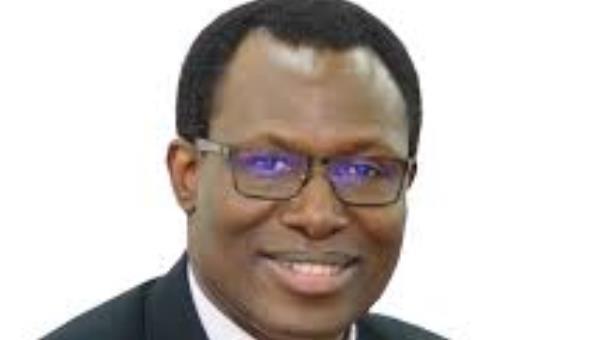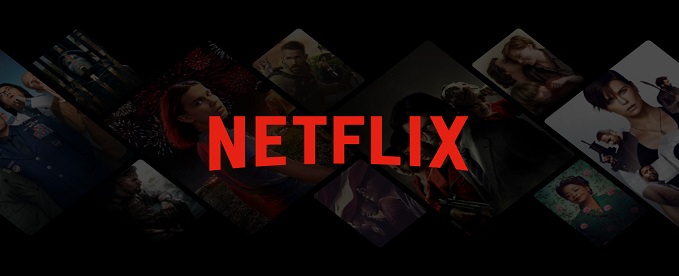Broadcasting
Creating Conditions for Sustainable and Inclusive Growth in Nigeria’s Digital Economy – An Urgent Call for Action

By Engr. Gbenga Adebayo
The renewed Hope Agenda clearly recognizes the power of technology and innovation to enable inclusive economic growth and development. It is an important acknowledgement that if we can create the conditions within which innovation can thrive, we can maintain, or even accelerate the already rapid growth in the digital economy.

Since the liberalisation of the telecoms sector in the early 2000s, the ICT sector’s contribution to GDP in Nigeria has grown progressively. Today, it delivers 17.89% of annual GDP. That is more than double the contribution of oil and gas. From the initial development of connectivity infrastructure and services, the sector has catalysed the emergence of innovative technology businesses across a range of sectors. From financial technology, to data, logistics, transportation, healthcare and education.
It also provides the infrastructure that enables the delivery of critical national development projects, from national identity enrollment and management, to elections and financial inclusion programmes that provide access to vital services for marginalised and vulnerable communities.
While this growth is impressive and the impact on socio-economic development so far has been clear, the journey is far from over. The recognition within the renewed hope agenda is that the sector has the potential to drive a new wave of inclusive economic development that can be the foundation of Nigeria’s economy for decades.
To deliver this, the government has clearly and publicly acknowledged the importance of creating an enabling environment for investment and taken a number of bold steps to address investment bottlenecks. From the tough decisions to unify the exchange rates, to the tightening of monetary policy and a focus on reviewing the tax regime to make it smoother and more efficient. They have also created target investment funds to support key sectors of the economy, from healthcare and agriculture to the small businesses that drive the economy.
The specific role of the digital economy is captured in the Federal Ministry of Communications, Innovation and Digital Economy’s 4 year 2023-27 growth plan, which envisages a further 15% increase in the contribution of the ICT sector to GDP growth, as well as 15% YoY increases in investment in the sector, both of which are projected to support a 100% increase in the annual net revenue that the sector delivers to government.
These are laudable and ambitious objectives, but they are impossible to achieve without deliberate sustained strategic and tactical action. If these actions are not taken, then the foundations that have been built are vulnerable and not only will these objectives be missed, but the industry will stagnate.
If you look carefully at the investment trajectory in the telecoms industry you can see two clear and concerning trends, which are being further exacerbated by the recent short term economic shocks. Between 2021 and 2022 industry CAPEX declined by 30.37% while industry Foreign Direct Investment declined by 46.9%. This happened at a time when operational expenses have surged and it has been exacerbated more recently by rising interest rates increasing the cost of debt. What that means is that industry expenditure has been diverted from capital (expansion and growth) to operations and that the investment environment has deteriorated. The ultimate manifestation of this has been the recent losses declared by major operators for FY 2023 and HY 2024.
This is further exacerbated by the multiple taxation ecosystem that continues to exist across Nigeria, with operators exposed to 54 different federal/state/local government taxies or levies, many of which are technically illegal. There is a perception that the telecoms industry is highly profitable and so can be treated as a ‘cash cow’ – we are now seeing the impact of this, and even though it is clear operators are suffering, more new taxes continue to be considered by the national assembly.
This is a critical moment. It is an inflection point. If we act, we can establish the platform for growth and the delivery of the government’s ambitious objectives. If we delay, or fail to take the decisions necessary, then the industry is likely to go in the wrong direction. This will not only damage the interests of investors, many of whom are Nigerian, but also impact the emergence of the innovative services and products that ride on telecoms infrastructure.
We believe that decisive action can turn this moment from a crisis into an opportunity. Following extensive research, the Association of Licensed Telecom Operators of Nigeria (ALTON), has developed a clear set of recommendations that can catalyse the next wave of growth in the industry, and for Nigeria. These are:
- Take immediate action on retail pricing: In the short term, this means an industry wide increase to retail tariffs, which were last reviewed in 2016, when the exchange rate was N373/$ and inflation at 18.4%. No industry can survive indefinitely in a rapid inflation environment and not be allowed to increase retail prices. Regulators have denied all recent requests, despite approvals being granted in other critical industries from power to fuel and transportation.
- Make industry pricing sustainable: Every price increase requires individual pre-approval from the regulator, which continues to use 2016 pricing guidance. This is an outdated regulatory model that is not representative of global best practice. ALTON recommends the implementation of a general authorization regime for tariff administration under which the NCC sets general pricing principles and requirements and operators independently align their tariffs with the set pricing requirements through self-certification, eliminating the need for prior approval.
- Provide concessionary funding to enable CAPEX investment: To continue to drive investment and growth in infrastructure, the industry needs access to concessionary finance. Establishing a dedicated financing facility will help mitigate the impact of recent interest rate increases and enable more investment.
- Build and expand regulatory capacity: With technology driving rapid change, we need to rapidly upskill the sector’s regulators to ensure the implementation of well structured regulation that provides the right balance between protection and investment incentive. Regulations need to be co-developed more constructively with industry on a regular basis.
If we can deliver each of these things, then we will have established the basis for long-term sustainable growth in the telecoms sector, and through it catalyse dynamic growth in Nigeria’s broader digital economy. This is achievable, and the time is now.
Engr. Adebayo is the Chairman of the Association of Licensed Telecom Operators of Nigeria (ALTON)
Broadcasting
Afia TV and Radio Stamps Footprints in Lagos

Afia TV & Radio has announced its official entry into the Lagos media market, in its commitment to expanding the broadcaster’s footprint, connecting businesses to audiences across Nigeria, and redefining regional media excellence.

Chief Emeka Mba,
Nnamdi Obanya, general manager of Afia TV & Radio, said there is only one digital satellite and one digital station in the southeastern region of Nigeria, which is Afia.
Obanya, stated that: “We are specialists in developing products. A programme on our channel, ‘How Market’, is where we talk to the people in the market to tell their stories and advertise their products on AFIA.”
According to him, “the market world has changed a lot, as the physical market has become a ware house while people are buying digitally.”
Chief Emeka Mba, founder and CEO, stated: “The parley brought together top media buyers, advertising agencies, and communication professionals for engaging conversations around emerging trends, innovation, and future-forward strategies in media planning and buying. The event also served as a platform for Afia TV and radio to unveil its offerings, platforms, and unique value proposition to Lagos-based stakeholders.”
While noting that they are thrilled to bring Afia’s fresh, original, and regional perspective to Lagos, Mba said, “this parley signals our readiness to collaborate, innovate, and deliver impactful results for our partners through data-driven content and targeted reach especially for brands looking to penetrate the southern Nigerian market.”
Equipped with modern broadcast studios, digital-first production capabilities, and a highly experienced team, Afia TV & Radio is poised to make a bold impression on the Lagos media landscape.
The media brand delivers high-quality programming ranging from news and documentaries to lifestyle, business, culture, and entertainment only in south-east but in Lagos, African and beyond, we want to be chief marketing platform of the eastern region, we are the only 24/7 radio station now in Enugu.
Broadcasting
NCC Warns DJs: Playing Music Without License Could Lead to 5-Year Jail Term

Nigerian Copyright Commission (NCC) has warned disc jockeys (DJs) against publicly playing music without proper authorization or a valid license.

NAN reports that John Asein, NCC director-general, gave the warning in an advisory issued in Abuja.
He said the commission’s attention had been drawn to the growing practice of DJs playing music in public spaces without obtaining copyright licences from their approved collective management organisations (CMOs).
Asein said under sections 9 and 12 of the Copyright Act, 2022, only the owner of copyright in a musical work or sound recording has the exclusive right to reproduce, perform, or communicate it to the public.
The NCC threatened to prosecute defaulters in a case that could lead to a N1 million fine or a 5-year jail term upon conviction.
“Engaging in any of these acts without the owner’s authorisation constitutes an infringement under the Act,” he said.
“Such infringement may constitute a civil wrong or a criminal offence under section 44 (7), punishable upon conviction by a fine of not less than N1 million or imprisonment for a term of not less than five years or to both.”
Asein advised DJs to obtain the necessary licences and pay royalties to the approved CMO before performing music publicly.
The NCC director-general added that the commission will arrest and prosecute anyone found violating the law.
“For the avoidance of doubt, the approved CMO for musical works and sound recordings in Nigeria is the Musical Copyright Society, Nigeria (MCSN),” he said.
“The Commission is aware that the Disc Jockey’s Association of Nigeria (DJAN), as the umbrella body representing DJs in Nigeria, has entered into a Memorandum of Understanding with MCSN.
“Under the arrangement, DJAN is authorised to work with MCSN to facilitate the payment of royalties by DJs nationwide, based on the tariff that DJAN had negotiated with MCSN.”
Broadcasting
Netflix Hikes Subscription Fees Again in Nigeria over “Market Conditions”

Netflix has increased its subscription fees in Nigeria for the third time since 2024, with the Premium Plan rising by 21.43%, from ₦7,000 to ₦8,500 per month.

This marks the streaming platform’s first price adjustment in 2025.
Other subscription tiers have also been affected.
The Standard Plan now costs ₦6,500, up from ₦5,500—a hike of 18.18%.
The Basic Plan has increased from ₦3,500 to ₦4,000, while the Mobile Plan moved from ₦2,200 to ₦2,500, reflecting increases of 14.29% and 13.64% respectively.
The latest adjustment aligns with Netflix’s broader global pricing strategy, which the company has linked to its ongoing investment in content and platform development. In a previous communication to investors, Netflix stated, “As we invest in and improve Netflix, we’ll occasionally ask our members to pay a little extra to reflect those improvements. Which in turn helps drive the positive flywheel of additional investment to further improve and grow our service.”
While the company did not explicitly cite inflation in its most recent update, its website indicates that local economic factors influence its pricing structure.
“Price changes are made to respond to local market changes, such as changes to local taxes or inflation,” the statement read.
The move mirrors similar pricing shifts among other major digital and entertainment services in Nigeria.
Companies including Google, DSTV, GOtv, and Microsoft have also raised subscription rates, attributing their decisions to continued inflationary pressures and a weakening naira.

 General News2 days ago
General News2 days agoWema Bank Workers, Others Arraigned over Alleged N8.9Bn Cybercrime

 E-Financial2 days ago
E-Financial2 days agoCyber Crime: Hackers to Hold Secret Conference 3.0 July 25

 Telecom2 days ago
Telecom2 days agoGaps on Phone Number Recycling Fuel Identity Theft, Data Breaches- ICIR

 General News2 days ago
General News2 days agoMusic Stars, Comedians Light Up “Evening with Glo” in Ijebu Ode

 E-Business2 days ago
E-Business2 days agoFG Enrolls 59,786 Inmates on NIN Platform

 E-Financial2 days ago
E-Financial2 days agoSEC Flags ‘Punisher Coin’ As High-Risk Scheme

 Telecom1 day ago
Telecom1 day agoTelcos Hit by Major Outages across Lagos, Enugu, Others

 News1 day ago
News1 day agoBeware!, Fraudsters Using our Name to Defraud Investors- NNPCL
























